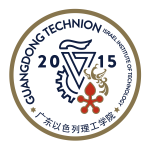
Zhujiang Wang
Associate Professor, Mechanical Engineering (Robotics) Program
Office: R319, North Campus
Dr. Zhujiang Wang is an Associate Professor of Mechanical Engineering (Robotics) program and Research Center for Science & Engineering in Health and Medicine (GTIIT-SEHM) since December 2021. He holds a BSc and MSc in Power Engineering and Engineering Thermophysics from Xi’an Jiaotong University, and a PhD in Mechanical Engineering from Texas A&M University (TAMU) in 2016. He has worked as a postdoctoral researcher at the Department of Mechanical Engineering of TAMU and as a software engineer at SimInsights (United States). Prior to joining GTIIT, he conducted interdisciplinary healthcare projects as a postdoctoral fellow at the Faculty of Health Sciences in Ontario Tech University. Throughout his career, Dr. Wang has a broad interest in solid mechanics and has led interdisciplinary projects in healthcare, computer graphics, rapid prototyping technology, mechatronics, and virtual reality.
At GTIIT, Dr. Wang’s research encompasses three primary areas: mechanical properties and hyperelastic constitutive models of soft materials, efficient simulation of hyperelastic materials, and design and optimization of graded lattice structures. The overarching objectives of his research are to advance virtual reality-based surgical simulations and facilitate the clinical application of 3D printed footwear for diabetics, splints, prosthesis/orthotics.
- Hyperelasticity
- Virtual fields method
- Lattice structures design and optimization
- Rapid Prototyping
- Medical Devices and Simulations
Wang Z, Fratarcangeli M, Ruimi A, Srinivasa AR*. Real time simulation of inextensible surgical thread using a Kirchhoff rod model with force output for haptic feedback applications, International Journal of Solids and Structures. 2017 May 15;113–114:192–208.
Wang Z, Wang Z*, Ko W-H, Iquebal AS, Nguyen V, Kazerooni NA, et al. An autonomous laser kirigami method with low-cost real-time vision-based surface deformation feedback system. Int J Adv Manuf Technol, 2022 Jan, 118(5):1873-83.
Jiang M, Dai J, Dong G, Wang Z*. A comparative study of invariant-based hyperelastic models for silicone elastomers under biaxial deformation with the virtual fields method. Journal of the Mechanical Behavior of Biomedical Materials. 2022 Dec 1, 136:105522.
Jiang M, Du X, Srinivasa A, Xu J, Wang Z*. Reformulation of the virtual fields method using the variation of elastic energy for parameter identification of QR decomposition-based hyperelastic models. Acta Mechanica. 2023 Jun 25:1-9.
Jiang M, Xinwei Du, Wang Z*. Development of the variation-of-elastic-energy-based virtual fields method for parameter identification of incompressible and compressible hyperelastic materials, International Journal of Non-Linear Mechanics, 2023
Wang, Z., Srinivasa, A.R., Reddy, J.N.*, and Dubrowski, A, PIMesh: An automatic point cloud and unstructured mesh generation algorithm for meshless methods and finite element analysis – with applications in surgical simulations, International Journal for Numerical Methods in Biomedical Engineering, 2022
